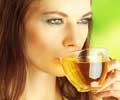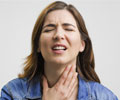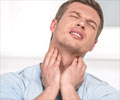People who drink their tea piping hot run a higher risk of throat cancer than counterparts who prefer a cooler cuppa, according to an investigation published Friday by the British Medical Journal.
Cancer of the oesophagus is linked especially to smoking and alcohol abuse but hot beverages have also been considered a risk factor, possibly because of damage to throat tissue.Interested in finding out more, Iranian researchers went to Golestan province, which has one of the highest rates of oesophageal cancer in the world.
Inhabitants there sip large quantities of hot black tea, typically drinking more than a litre (1.8 pints) per day per person, but also have a low incidence of tobacco and alcohol use.
A team led by Reza Malekzadeh of the Digestive Disease Research Centre at Tehran University of Medical Sciences looked at 300 people who had been diagnosed with a throat tumour and a matched group of 571 healthy people who lived in the same area.
Those who drank hot tea (between 65-69 degrees Celsius, 149-156 degrees Fahrenheit) were twice as likely to develop throat cancer compared with those who drank warm or lukewarm tea, whose temperature was 65 C (149 F) or less.
Drinking very hot tea (at least 70 C, 158 F) was associated with an eightfold increased risk compared with warm or lukewarm tea.
Advertisement
But it also said that there was no cause for panic, as most people tend to drink tea at a warm temperature. Previous studies in Britain have reported an average temperature preference of 56-60 C (133-140 F).
Advertisement
The study said there was no association between the amount of tea that was consumed and the risk of cancer.
Its scope did not include an assessment of risk for coffee and other hot beverages.
Source-AFP
SRM













